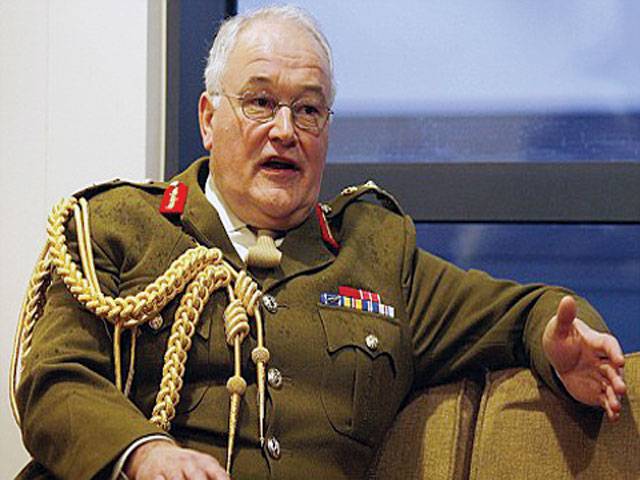Military leaders failed to calculate the magnitude of the conflict in Afghanistan, the former head of the British army has told the BBC.
Gen Sir Peter Wall said they thought they had a “reasonable force” for their limited objectives, but he now admits they got it wrong.
The commander in Helmand in 2006, Brig Ed Butler, said troops were “underprepared and under-resourced”. The MoD said it was “proud of what we have achieved in Afghanistan”.
Since the conflict began in 2001, 453 British troops have died. In 2004, the Army was still engaged in the conflict in Iraq and its leaders admit they were aware that they did not have the resources to fight in more than one campaign for any length of time. But they fulfilled a commitment to send 3,300 troops to Afghanistan as part of the Nato force.
Gen Wall told a BBC Two documentary: “We had put forward a plan saying that for the limited objectives that we had set ourselves, this was a reasonable force. And I freely admit now, that calculus was wrong.”
‘Flawed assumption’
Military leaders had assumed that the operation in Iraq would have been winding down when troops were deployed to Afghanistan, but in 2005 the situation in Iraq was deteriorating.
Lord Dannatt, head of the Army between 2006 and 2009, said: “Looking back we probably should have realised, maybe I should realised, that the circumstances in Iraq were such that the assumption that we would get down to just 1,000 or 1,500 soldiers by summer 2006 was flawed - it was running at many thousands.
“We called it the perfect storm, because we knew that we were heading for two considerable size operations and we really only had the organisation and manpower for one.
“And therefore perhaps we should have revisited the decision that we the UK would lead an enlarged mission in southern Afghanistan in 2006. Perhaps we should have done that. We didn’t do that.”
Lord Richards commanded the 35,000 troops from 37 nations in Nato’s International Security Assistance Force (Isaf) from 2006-07. He said there was an “institutional reluctance” to accept the conflict could deteriorate.
He said: “We have a phrase in the Army, hope for the best but plan for the worst. We were actually hoping for the best and planning for the best. I mean I didn’t have the resources I needed.
“I didn’t have a reserve, I didn’t even have an aircraft to fly round my own patch. I mean we just weren’t in the real world.”
In the summer of 2006, some British forces in Afghanistan found themselves effectively stranded in a number of outposts in the north of Helmand province. Overstretched, under constant fire and heavily dependent on helicopters, soldiers ran dangerously low on food, water and ammunition.
The commander of the British forces in Helmand in 2006, Brig Ed Butler, said: “We were underprepared, we were under-resourced, and most importantly, we didn’t have a clear and achievable strategy to deliver success.”
Lord Dannatt said: “There was a real danger that we would find that we couldn’t support our people, that we would find a platoon cut off and potentially massacred.” But army chiefs remain confident that in the long term, the mission was worthwhile.
Gen Wall said: “The lasting impact we will have had is not just to sanitise the threat to allow the development of governance and economy, but to be a witness to and stimulus for very significant social change, with an improving economy, with jobs, with much developed farming opportunities in contrast to narcotics.
“Had we not done this, Helmand could well be looking rather like the borders of Syria and Iraq.”
A spokesperson from the Ministry of Defence (MoD) said: “It is well-documented that the beginning of the Afghan campaign presented military obstacles but we can be proud of what we have achieved in Afghanistan.
“With our international partners we went to remove Al-Qaeda terrorists who were plotting to kill people and cause destruction on our own streets and to prevent their return. That has been the most important part of the mission and the terrorist threat to the UK from this region has been substantially reduced.”
The statement also highlighted the UK’s “important role in training Afghan security forces”, who would continue to be supported.–BBC
Monday, April 15, 2024
UK military ‘made wrong calculations’ on Afghanistan

10:19 PM | April 15, 2024
Meghan Markle demanding a grovelingly apology for the past
10:38 PM | April 15, 2024
Child Marriage Act: LHC terms difference in gender-based age criteria 'discriminatory'
10:37 PM | April 15, 2024
Elon Musk reveals 'crucial fact' about all-powerful Starship
10:35 PM | April 15, 2024
Aseefa Bhutto Zardari sworn in MNA
10:27 PM | April 15, 2024
Iranian President Raisi to visit Pakistan on April 22
10:26 PM | April 15, 2024
Policing Reforms
April 15, 2024
Storm Safety
April 15, 2024
Deterrence Restored
April 15, 2024
IMF Challenges
April 14, 2024
Security Crisis
April 14, 2024
Suicide awareness
April 15, 2024
Biden’s dilemma
April 15, 2024
Over dependence on technology
April 14, 2024
Education reform call
April 14, 2024
Brain drain
April 14, 2024
ePaper - Nawaiwaqt
Advertisement
Nawaiwaqt Group | Copyright © 2024





